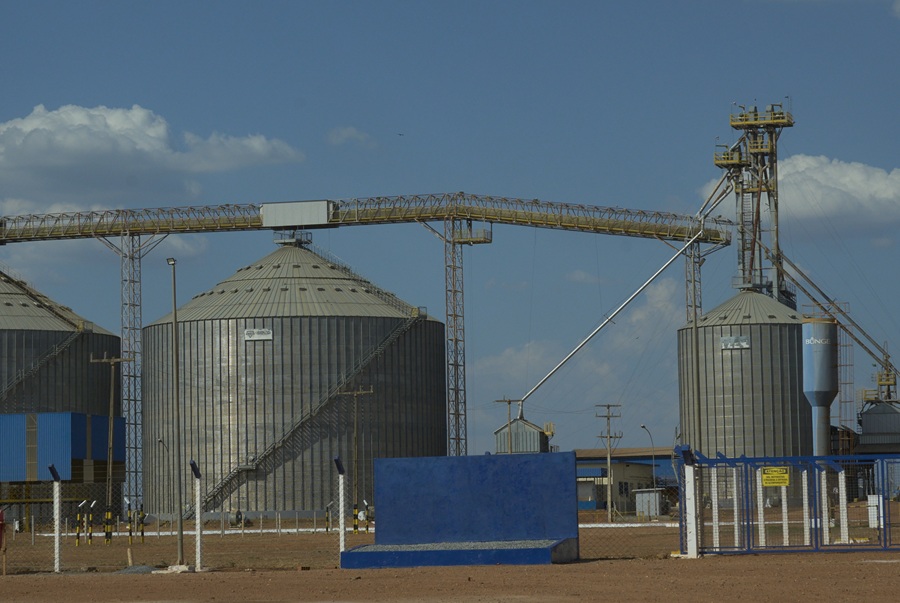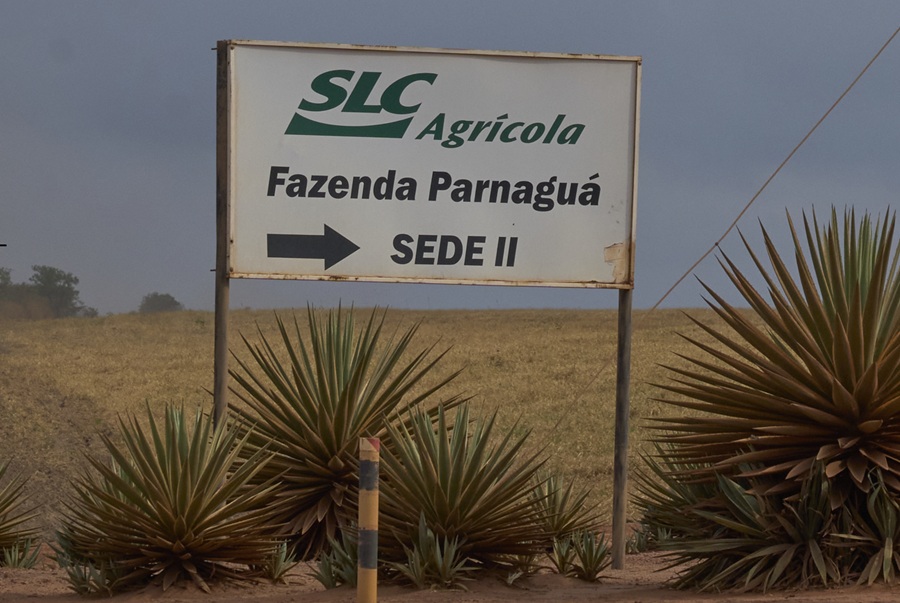From Gilbués, Baixa Grande do Ribeiro, and Santa Filomena (PI) – In southern Piauí, Cosmos farm has seen recent deforestation in areas adjacent to parts of the property where land conflicts with traditional communities are occurring, while the other half of the farm, without environmental liabilities, is leased by SLC Agrícola, one of the Brazil’s largest producers of soy, corn, and cotton.
A supplier to agribusiness giants such as Bunge and Cargill, SLC adopted a zero deforestation policy in 2021, including for leased areas and authorized vegetation suppression. However, the company restricts its policy to lands under direct control.
For organizations monitoring commodity supply chains, the lessee cannot ignore the context of the entire property. “A company that does this ends up benefiting a deforester and even financing more deforestation in that area or elsewhere,” said João Gonçalves from the environmental organization Mighty Earth.
This investigation was conducted by Repórter Brasil, in partnership with O Joio e o Trigo and The Bureau of Investigative Journalism.
ASSINE NOSSA NEWSLETTER
Awarded for sustainable practices, SLC Agrícola participates in COP30, the global climate conference in Belém, in Brazil. In a panel on regenerative agriculture, the company, listed on the B3 stock exchange, highlighted the implementation of recycling at some of its 27 farms spread across the Amazon and Cerrado regions.
A report from the MapBiomas platform, which monitors and generates deforestation alerts, on the leased property, located in Santa Filomena, identified deforestation of 3,700 hectares on the site between July 2024 and February of this year. The document indicates that part of the suppression may have occurred within the Legal Reserve of the farm, where, according to the law, native vegetation must be preserved. The lease of parts of Cosmos by SLC was announced in August 2024.
At Repórter Brasil‘s request, the Dutch organization AidEnvironment analyzed satellite images of the area and identified, in addition to deforestation, evidence of fire usage in portions of the farm. “Corporate policies don’t mean much if they are circumvented by arrangements that leave companies’ responsibilities in doubt,” said Marco Túlio Garcia, a researcher at the organization.
The deforested perimeter is near the territory occupied by the traditional Melancias community, which has been involved in a legal dispute with the owners of Cosmos farm for over ten years. Community members claim that the owners of Cosmos promoted land grabbing to incorporate areas traditionally occupied by their families into the farm’s perimeter.
When approached by the reporters, SLC maintained that the deforestation and land conflict are outside the leased area and have no relation to its operation. “Under the lease agreement terms, SLC Agrícola only assumes ownership of the leased polygon. The rest of the property remains under the ownership and responsibility of the landowner,” the company stated, also emphasizing that it maintains 35.9% of its land with native vegetation—a percentage higher than the legal requirement for the Cerrado biome. You can check SLC’s statement here.
Cosmos farm is owned by businessmen Ricardo Tombini and Eduardo Dall’Magro. In 2024, it received state government authorization to deforest 6,000 hectares within the property.

Repórter Brasil sent questions to the lawyers of both businessmen, but they were not answered in writing. However, in a phone conversation with the reporters, Tombini emphasized that he obtained authorization for the deforestation and denied the land grabbing accusations, alleging that it is the Melancias community that is invading the farm’s perimeter.
Customers plan rural property evaluation
Bunge and Cargill are the main clients of SLC Agrícola, accounting for 43% of the company’s sales in the second quarter of 2025, according to corporate documents accessed by Repórter Brasil.
Both multinationals have committed to eliminating deforestation in their soy supply areas in the Cerrado, a biome heavily affected by the expansion of the agricultural frontier, by 2025. The commitment—which includes the region where Cosmos is located—covers both illegal deforestation and authorized vegetation suppression.
When contacted, Bunge did not clarify whether it purchases raw materials from Cosmos. However, it stated that its commitment to being deforestation-free in priority regions “is a central part of the company’s business strategy and planning.” Read the full response here.
When asked about its operations in the region, Cargill stated that it had not found any irregularities in the areas where it purchases grain. The company said it has a ‘robust’ supplier verification system. ‘If we find any violation of our policies and commitments, the producer will be immediately blocked from our supply chain,’ it said. Read the full response here.
For Mighty Earth, it is not enough for buyers to monitor isolated plots on fragmented properties with “clean” and “dirty” areas. “The due diligence process of traders should consider the entire area of their suppliers,” said Gonçalves.
This investigation was supported by Brighter Green’s Animals and Biodiversity Reporting Fund.
The text was updated on 24 November to include Cargill’s statement.
Leia também


